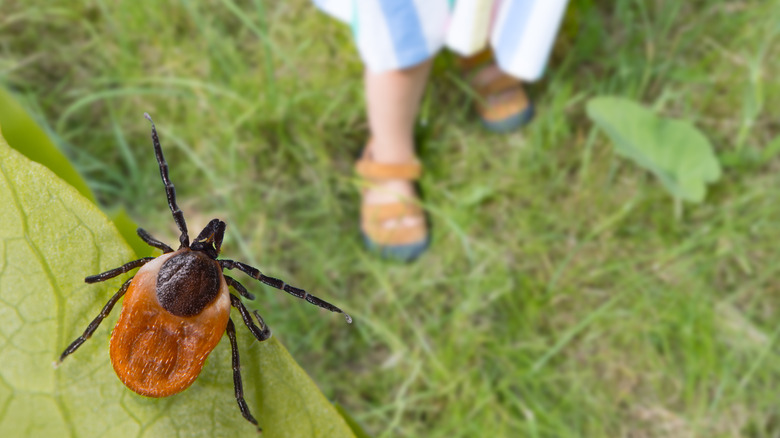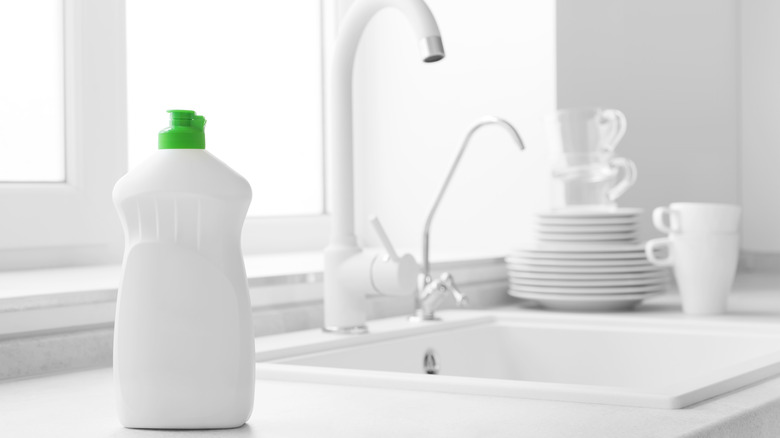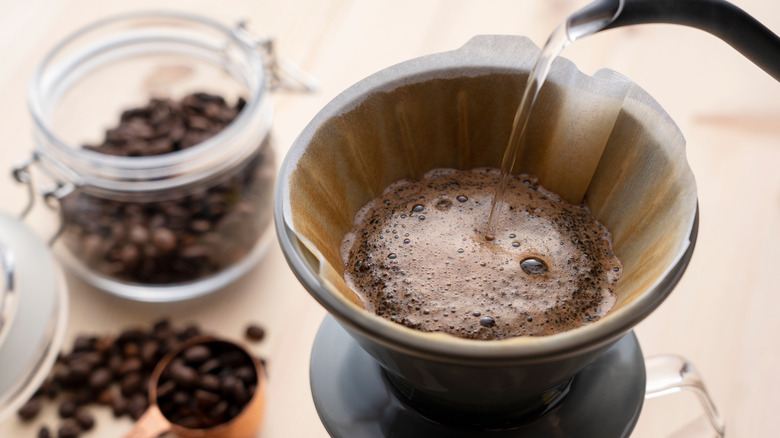Is It Safe To Use Dish Soap To Kill Lawn Pests?
Are there critters crawling through your lawn? It's no fun when you're trying to enjoy sitting in your garden and bugs are crawling over your legs. There are over 500 different types of insects that can call your lawn home. Not all are harmful, but some can wreak havoc on your grass, covering it in unsightly brown patches. When trying to get rid of these pests, it's best to know which one you're dealing with. Then you can work out when they're most vulnerable in their life cycle and use your chosen pest control method.
Command Pest Control explains that uneven grass is the first sign that your lawn is infested with harmful insects. This is when some parts grow healthy, like usual, but other areas take a long time to develop. Some other signs that pests have taken over your lawn are that the grass is turning from green to brown, blades are misshapen with bite marks, or spots of soil are peaking through dead greenery. Once you realize there's a problem, it's time to decide which method is best to control these insects, and dish soap may sound like a safe and convenient option.
Don't risk using dish soap on your lawn
Dish soap will work to kill pests, however, it's not safe for your lawn. If you don't dilute it properly with vegetable oil and water you could find that your grass is brown and dead by the next day. This happens because the chemical sodium lauryl sulfate (SLS) is heavily concentrated in dish soap because it breaks down the oils and fats and removes stains. It works at killing pests because it does the same thing to their cell walls.
The problem is that when you pour dish soap on your lawn, its roots are made of oil-based tissue too. This tissue helps to retain excess moisture so grass can continue to live between waterings and under the bright summer sun. Once the dish soap breaks up the oil-based tissue, your lawn will quickly dry out, becoming brown and patchy. Moreover, there are several alternative methods that are safer and don't risk killing your grass along with the pests inhabiting it.
Vinegar or coffee grounds
If you want to stick to homemade pest control methods, apple cider vinegar and coffee grounds are other ways to clear your lawn. Apple cider vinegar works well because it's naturally acidic, so it will kill many of the insects that come into contact with it. It's a great option instead of dish soap because it also repels future pests from moving into your lawn. To use this method, dilute 1 ounce of apple cider vinegar with 3 ounces of water, then pour your solution into a spray bottle and apply it to your lawn. You could also use distilled white vinegar in a 1 to 1 ratio if you already have that type available at home.
Another option is to reuse your coffee grounds. Instead of throwing them away, put them to use as a pest repellent. They're effective because of the potent smell they release, which doubles when you burn them. For this method, save your used coffee grounds and collect them in a fire-safe bowl or tin foil. Ensure they're completely dry, and place the bowl in the center of your lawn. Then add a few drops of lighter fluid and set them on fire with a long match. Coffee grounds will not only clear your yard of pests, but they will repel mosquitos as well.


